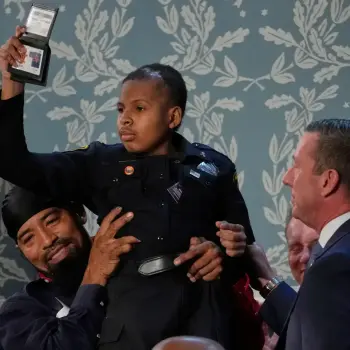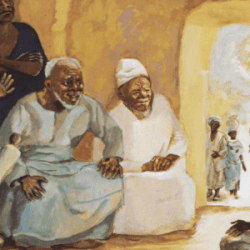Editors' Note: This article is part of the Patheos Public Square on Best Practices for Peace in 2015. Read other perspectives here.
As a kid in Beirut, I passed by a legless child strapped onto a skateboard. He used the device to travel around the war-torn city, and peddle Chicklets gum to survive. It was 1987, one of the final years of the Lebanese Civil War.
I felt an instant pity as I set sights on him. But almost immediately, that pity was overwhelmed by a rush of awe for the child, who was not much older than myself at the time. Despite his considerable limitations, he spoke with an unshakeable confidence, wore the widest smile, and pushed himself through the besieged capital with nothing more than the change in his pocket.
"Would you like to buy some gum?" he asked, after being shooed away by two adults. I dug through my pockets and took out a crinkled dollar bill, a remnant of the America we left for a life in Lebanon, and handed it to the young peddler.
Giddy with the sale, he handed me two packs of gum and bid farewell. As fast as he rolled up toward me, the child whisked himself back into the menacing maze of Beirut's devastated streets. I would look for him on the way to school, while running an errand for my mother, or walking the streets with my siblings. However, our first encounter would also be our last.
I think of that child often, and especially on New Year's Eves like tonight. Is he still alive? Did he start a family? Was his otherworldly strength enough to counter his visible limitations and cruel circumstance?
Whether here or gone, that child will live as a lurid reminder in 2015 that instead of turning away from struggle, or pitying those strapped tightly to it, our lives are enriched by seeking out the wisdom and warmth that will come from embracing them.
One need not travel to the Middle East to find the same struggles that legless child encountered on the streets of Beirut. America today finds itself at a critical juncture, where marginalized communities strapped down by rampant police brutality, institutionalized racism, and second-class citizenship, are pushing forward. This push forward is evidenced most vividly by the protests that started in Ferguson, Missouri, following the killing of Michael Brown in August.
The seeds of protest sowed in Ferguson would blossom nationally, and, after the killings of Eric Garner and Tamir Rice, mobilized a national movement that revitalized the spirit of the Civil Rights Movement. The color-blind platitudes of "Post-Race America" were eclipsed by the rise of "Black Lives Matter," "I Can't Breathe," and a revitalized vision of racial equality and liberation.
The en masse demands for justice, on social media and on the ground, forced America to look toward and embrace struggle. Turning away was only an option if one chose to remain ignorant, or was wed to a racially unjust status quo. Critics of these movements derided them as "wayward," or branded them "violent," while comfortably seated in perches distant from the protests and persecution that prompted them.
Yet, an intimate view of the protest revealed a vibrancy, racial unity, and peace that has evaded America for far too long. Ferguson, which stood as a national emblem of racial segregation and police violence, emerged into a global symbol of solidarity. Protests organized by students and community leaders, lawyers and lay people, sprouted across the country, bringing together Americans of all shades and stripes.
"All eyes were on American racism," again, as the grassroots protests in the United States blossomed abroad. Solidarity marches in London and Paris, India, and even war-torn Syria were held. The universal appeal of the protests were undeniable, particularly for marginalized people a hemisphere away. Yet, gatekeepers of inequity continued to vilify the protests, and apathetic Americans stood idly by.
Whether the protests were "peaceful" misses the point. More critically, the protests embodied the promise and prospect of peace—a peace that cannot be achieved without facing American racism, grappling with it, and struggling to bring about its removal.
Turning away from it, or pitying those strapped tightly onto it, may prolong your superficial bliss. But, it won't offer you peace. Nor will it silence, slow, or stop those committed to the struggle for dignity, equality, and the peace that follows.
1/7/2015 5:00:00 AM




